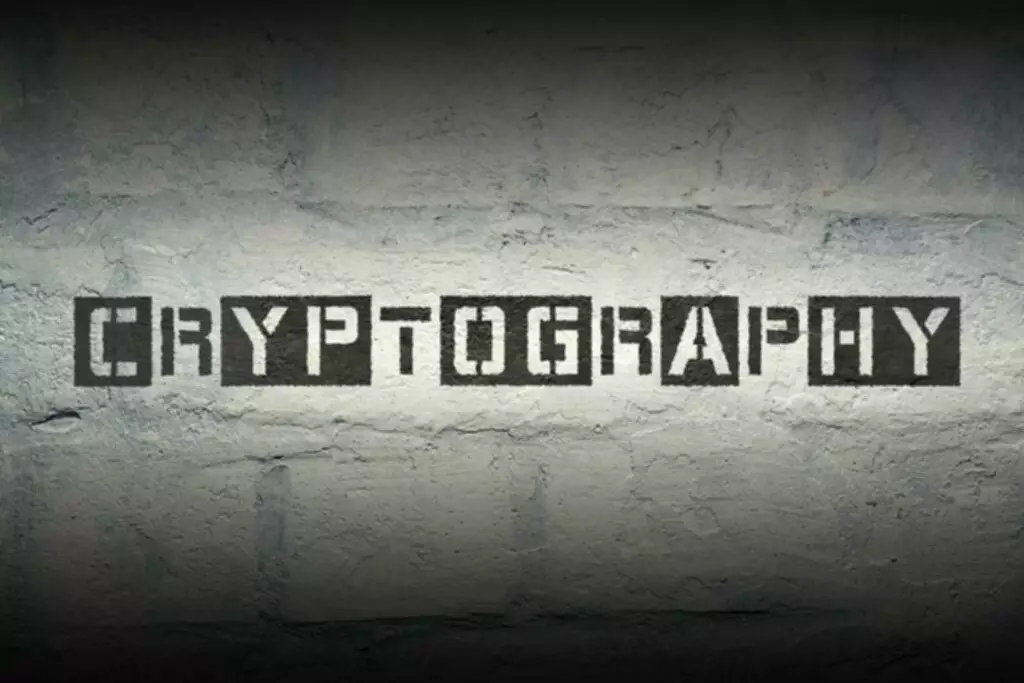20 Apr Nasdaq Market Maker vs NYSE Specialist: What’s the Difference?
Content
The real execution time spreads and commissions can only be verified on a live trading account. Keep in mind that many NDD brokers still run a market-maker model where they keep smaller orders in-house but send larger orders directly to the liquidity providers. There is nothing wrong with this business model as it allows the broker to make more money while taking only half the risk.

One of the bigger changes from the specialist role, which the DMM replaced, involves the trade information that a DMM has access to. As trades are made and quotes get filled on bids and offers, the DMM works to balance their inventory accordingly. Part of the responsibility is to lessen volatility and increase liquidity, but those factors are not always under their control. Nevertheless, the market maker is expected to maintain quotes and to ensure orders are executed regardless of market conditions.
Brokers with full services
MM brokers also claim that even when you act as a STP Broker then you are transferring the orders to another LP that the latter acts as a MM. MM brokers claim there is no middle man involved and you are trading directly with them, which is true. Another role that a Market maker can take on is that of a Designated Primary Market Maker . A DPM is approved and sometimes employed, by an exchange in order to guarantee that they will buy or sell a particular security or option. Exchange bylaws regulate market maker operations, and these are approved by the security regulator of a country. Should an investor wish to buy shares in Apple, for example, they would need to find someone who is willing to sell their shares.
With the aid of options contracts, several brokers offer trading platforms, trade execution services, and tailored speculative and hedging solutions. As derivatives, options contracts derive their value from an underlying asset. Investors who purchase options have market maker crm the option, but not the responsibility, to buy or sell shares at a predetermined price at the time the contract expires. A designated market maker is a market maker responsible for maintaining fair and orderly markets for an assigned set of listed stocks.
- Profits for the market makers come from the differences between the price investors pay and market prices.
- The New York Stock Exchange, located in New York City, is the world’s largest equities-based exchange in terms of total market capitalization.
- While market makers don’t have the certainty of a weighted coin, this is how they think about their trading.
- As derivatives, options contracts derive their value from an underlying asset.
- However, there still is a conflict of interest with a MM broker, which at first it appears does not exist with STP brokers.
- In contrast, a so-called market maker broker plays the role of being the liquidity provider without relying on the interbank, broadly ‘making a market’ for its clients.
Market Makers are duty bound to make a market and to meet the needs of those they are responsible, market maker crm to this end they may try to influence the market. Market makers give investors the power to trade as soon as they want to, and this all-important certainty helps to keep the markets moving. This minimises potential conflicts of interest and drives a focus on creating liquid markets while applying strong risk management. Some of the bigger market makers include BNP Paribas, Deutsche Bank, Morgan Stanley, and UBS. Sometimes a market maker is also a broker, which can create an incentive for a broker to recommend securities for which the firm also makes a market.
Market Makers vs. Floor Brokers
Large investment organizations or financial institutions that act as market makers produce liquidity in the market. For all of these services, investors usually pay higher commissions for their trades. Brokers also get compensation based on the number of new accounts they bring in and their clients’ trading volume. Brokers also charge fees for investment products as well as managed investment accounts. Some brokers cater to high-net-worth clients with assets of $1 million or more.

The ask price, which is set slightly above the market price, would be charged to an investor who wants to purchase a security. Profits for the market makers come from the differences between the price investors pay and market prices. By supplying liquidity to the businesses of their clients, market makers also make commissions.
The difference between the cost price of the shares and the selling price is the profit they make. Though the difference between the ask price and bid price for each share is low, the stocks altogether offer huge profits to these market players daily. The foreign exchange market maker both buys foreign currency from clients and then sells it to other clients. They derive income from the price differentials on such trades, as well as for the service of providing liquidity, reducing transaction costs, and facilitating trade.
Best Market Maker Forex Brokers 2022
Because brokers are regulated and licensed, they have an obligation to act in the best interests of their clients. Many brokers can also offer advice on what stocks, mutual funds, and other securities to buy. Due to the availability of online trading platforms, many investors can initiate transactions with little or no contact with their personal broker. The NYSE operates with a system of individual securities “specialists” who work on the NYSE trading floor and specialize in facilitating trades of specific stocks. Overall, ECN dealers are better suited for users where low spreads aren’t of much significance to execution, i.e., swing and position traders. On the other hand, scalpers and day traders or just high-frequency traders, in general, need more fixed trading costs, which they can only get from a market maker broker.
A market maker participates in the securities market by providing trading services for investors and boosting liquidity in the market. They specifically provide bids and offers for a particular security in addition to its market size. Market makers typically work for large brokerage houses that profit off of the difference between the bid and ask spread. Many market makers are often brokerage houses that provide trading services for investors in an effort to keep financial markets liquid.
Comparebrokers.co needs to review the security of your connection before proceeding. The New York Stock Exchange, located in New York City, is the world’s largest equities-based exchange in terms of total market capitalization. An order book official is the trading floor participant responsible for maintaining a list of public orders within a specific option class. Payment for order flow is compensation a broker receives for directing trade execution to a particular party.
Their main priority is to ensure there’s enough liquidity in the markets. They determine that there is enough trading volume, so that the trades are smooth and flawless. The designated market maker position is relatively new to the New York Stock Exchange. This type of position was added in order to increase competitiveness and market quality as electronic trading becomes more widespread and dominates financial markets. Announced in 2008, the DMM is considered a value-added service offering higher touch than what an electronic-only platform can provide. If a market maker wants to push down a stock price, then they take the risk of getting squeezed and vice versa.
The Market Makers act as retailers of shares and display their prices during working hours. The prices may vary during the day, depending on a number of influences. For example, if holders of very large amounts of a share decide to sell , then the Market Makers will reduce the price that they are prepared to pay for the share.
ECN vs Market Maker Brokers
Market makers play an essential role in the operations and stability of financial markets. This acts as compensation for the risk they undertake when holding securities. Market makers are usually aware of dips in stock value before it is sold to a trader and after it has been bought. They undertake this risk while holding securities and are compensated for it. IG is a trusted broker being listed in Stock Exchange for extra transparency.
Charles has taught at a number of institutions including Goldman Sachs, Morgan Stanley, Societe Generale, and many more. Market makers help keep the market functioning, meaning if you want to sell a bond, they are there to buy it. Similarly, if you want to buy a stock, they are there to have that stock available to sell to you. There are full service and discount brokers depending on the level of service a client needs. Some of these are banks, NBFCs, investment companies, brokerage firms, insurance companies and trust corporations. ECN is an electronic system that matches buy and sell orders in the markets eliminating the need for a third party to facilitate those trades.
ECN Brokers
Market makers are obligated to sell and buy at the price and size they have quoted. However, some of them also make money from spreads by offering slightly higher values than what they receive from the liquidity providers. A forex broker is a financial brokerage firm that acts as an intermediary between you and the market, providing a platform for traders to buy and sell currency pairs. If the market is in a buying frenzy, the specialist will provide shares until the price is stabilized.
Your Broker Has Options for Executing Your Trade
The low fees are based on trading volume, and since there’s no investment advice, employees of online brokers are usually compensated by salary instead of commission. Many discount brokers offer online trading platforms, which are ideal for self-directed traders and investors. These market makers maintain inventories of stock and buy and sell securities from their own accounts to individual customers and other dealers. Each market maker on Nasdaq is required to give a two-sided quote, meaning they must state a firm bid and ask price that they are willing to honor. Once an order is received from a buyer, the market maker immediately sells off their position of shares from their own inventory to complete the order.
The Role of Market Makers
Market makers earn a profit through the spread between the securities bid and offer price. Because market makers bear the risk of covering a given security, which may drop in price, they are compensated for this risk of holding the assets. For example, consider an investor who sees that Apple stock has a bid price of $50 and an ask price of $50.10. What this means is that the market maker bought the Apple shares for $50 and is selling them for $50.10, earning a profit of $0.10. Brokerage firms provide services to real estate investors through purchase and sale-related solutions.
Some help facilitate sales between two parties while others help create liquidity in the market. Brokers operating a Market Maker model typically have a dealing desk (they are sometimes referred to as ‘dealing desk’ brokers). The desk “makes the market” by quoting a bid and an ask price, and in the first instance attempts to offset one customer’s orders against another.
What Is a Market Maker?
Instead, Nasdaq relies on multiple market makers—major broker-dealer members of Nasdaq—for actively traded stocks. The goal of facilitating a smooth flow of financial markets is the same for both Nasdaq market makers and NYSE specialists. So the differences between market makers and specialists have more to do with the characteristics of the exchanges https://xcritical.com/ themselves than with their basic functions. This is a huge incentive for the broker to ensure securities for which the firm also makes a market. Based on our trading data and experience, we handpicked the best market maker forex brokers. While market maker brokers aren’t always seen in a favorable light, they are necessary for several reasons.


Sorry, the comment form is closed at this time.